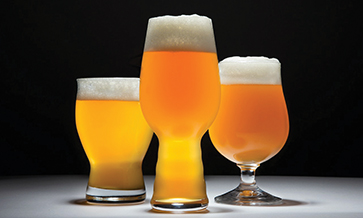A new technique used to extract more than 80% of the protein from grain leftovers when making beer has been created by scientists to reduce brewing waste. It indicates that millions of tonnes of grain wastage can now also be used to enrich human diets.
Developed by researchers from Nanyang Technological University in Singapore (NTU Singapore) the method published in the Innovative Food Science and Emerging Technologies journal.
Historically, the residue leftover from malted barley after brewing beer, often referred to as spent grain, is a byproduct that makes up 85% of the total waste during the process.
Currently, approximately 36.4 million tonnes of spent grain is produced every year, but now the new techniques will change this and make beer more sustainable and ecological.
Until now, spent grain is usually discarded with some sustainable breweries making sure it is used for animal feed, bio-fuel production, or composting. But a high proportion of spent grain still ends up in landfills, generating green-house gases such as methane and carbon dioxide.
After exploring new use cases for the grain proteins, the scientists revealed that if using their protein extraction method, the extracted proteins could be incorporated into foods, offering the potential to significantly enhance their nutritional value and helping in meeting their daily protein goals.
The extracted proteins could also allegedly be used for cosmetic purposes and follow the trend for consumers looking for more eco-friendly goods.
The researchers said that they extracted up to 200 gm of protein from 1 kg of brewers’ spent grain, indicating its potential as a protein source.
According to the findings, brewers’ spent grain proteins are safe for human consumption and are suitable for direct use in supplements as well as boosting the protein content of plant-based foods, thus offering a tangible way for vegans and vegetarians to enhance their diet’s nutritional value.
The researchers also said that the extraction method would also help mitigate a possible protein shortage due to a forecast 73% increase in meat consumption by the year 2050 predicted by the Food and Agriculture Organisation.
The researchers also revealed that the proteins extracted were found to be rich in anti-oxidants, which could not only protect human skin from pollutants but could also potentially extend the shelf life of cosmetics and skincare products.














